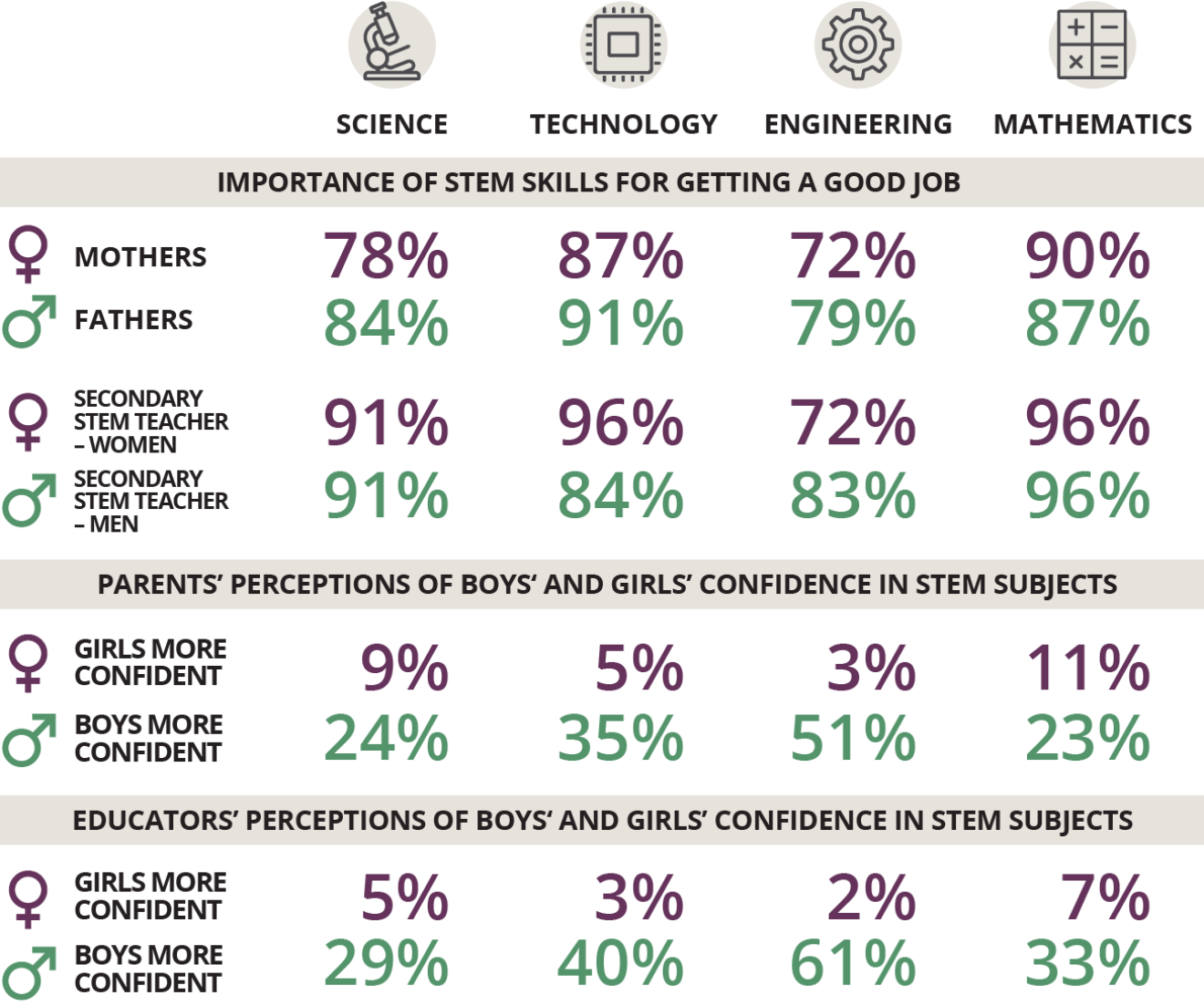A new survey has revealed what parents, teachers and career advisors think about science, technology, engineering and mathematics (STEM).
The STEM Equity Monitor collects and integrates data on girls’ and women’s participation in STEM, through schooling, higher education, graduation and the workforce.
In this year’s edition, the Monitor draws on data from a survey we commissioned to understand the early influences on girls’ perceptions and attitudes to STEM. This builds on YouthInsight’s 2019–20 Youth in STEM survey, which found that parents and teachers were the greatest influencer groups of young people’s education and career decisions.
To help provide these insights, YouthInsight surveyed almost 1,500 parents and 850 educators.
The 2021–20 STEM Influencer survey looked at parents’ attitudes to STEM subjects and careers and how often they talk with their kids about these topics. It also asked teachers and career advisers about their attitudes to STEM, and how confident they were teaching and advising on these topics. The responses highlighted how these adults viewed girls’ and boys’ capacity to engage in STEM subjects and careers.
While the majority of parents and educators saw STEM skills as important for getting a good job, they both perceived girls to be less confident than boys across all STEM subjects. This view was not necessarily shared by young people (12 to 17 years old) who responded to the previous year’s Youth in STEM survey.
Snapshot of 2020–21 results from parents, teachers and career advisers

Snapshot of 2019-20 results from young people

This year’s Monitor also delves into data on engaging Aboriginal and Torres Strait Islander girls in STEM study and careers. YouthInsight interviewed educators about their experiences to explore any specific opportunities and challenges for this group.
Educators highlighted the importance of building confidence, greater visibility of STEM role models, and awareness of opportunities among all Aboriginal and Torres Strait Islander students. However, they felt this was more important for the girls. They also identified a range of approaches to help engage Aboriginal and Torres Strait Islander girls in STEM education and opportunities for STEM-related careers.
You can explore the data and see more insights on interactive pages in the Monitor:
- parents’ perceptions and attitudes
- educators’ perceptions and attitudes
- young people’s perceptions and attitudes
- Aboriginal and Torres Strait Islander engagement
The Monitor and integrated data tells an evolving story. We will publish new data annually to allow us to see trends over 10 years.
We’re interested in your feedback. When you visit the Monitor please take a moment to tell us what you think in our short survey.
Read more
- Read YouthInsight's full reports
- The STEM Equity Monitor is a key deliverable under the Women in STEM Action Plan.
- The Advancing Women in STEM strategy guides this plan, setting out the Australian Government’s commitment to increasing gender equity in STEM.
Connect with us
- Follow us on Twitter @ScienceGovAu
- Join us on Facebook @IndustryGovAu
- Follow us on LinkedIn
Contact us
Email STEM@industry.gov.au


